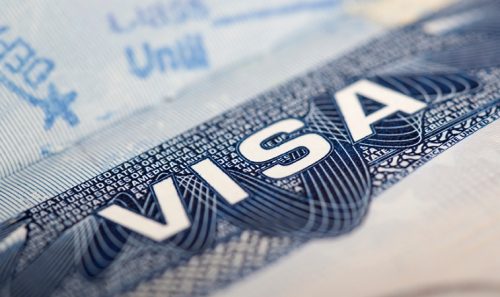
US, Indian business groups criticize move would harm US economy, slow down covid recovery.
US and Indian business groups have criticized Trump administration’s move to impose new rules targeting H-1B visas making it more difficult to hire skilled foreign workers saying they would only hurt American companies.
Announced by the US Department of Homeland Security on Tuesday, the new rules would narrow the definition of “specialty occupation” and shorten the length of H-1B visas for workers placed in third party sites from three years to one year.
The rules “will combat the use of H-1B workers to serve as a low-cost replacement for otherwise qualified American workers,” DHS claimed. The rules are set to go into effect within 60 days.
By narrowing the definition of “specialty occupation,” as originally intended by Congress, it would prevent companies from gaming the system, it said.
There are currently close to 600,000 foreign workers on H-1B visa in the US with Indian tech professionals cornering about two thirds of such visas in the last five years.
The US Chamber of Commerce, which had in July challenged President Donald Trump’s June executive order suspending H-1B, H-2B, H-4, L-1 and J-visas through the end of 2020, said the new rules could be harmful.
RELATED: New H-1B rule to make it more difficult to hire foreign workers (October 6, 2020)
“We’re still evaluating these proposals, but both of these rules have the potential to inflict serious harm upon many American companies,” Jon Baselice, Chamber executive director of immigration policy, stated Tuesday.
TechNet, a trade group consisting of tech executives, said that the new rule will harm America’s ability to recover from the pandemic and “has zero impact on increasing domestic American jobs.”
“Changing the requirements around H-1B and other work visas will only hurt American companies that depend on high-skilled workers who fill critical positions while we work to grow our domestic STEM pipeline,” TechNet CEO Linda Moore said.
The National Association of Manufacturers (NAM) also expressed its concern over “administration’s actions that impede our ability to access and develop top talent in a challenging economic environment.”
“Actions taken without stakeholder input can disrupt industry and undermine ongoing recovery efforts,” a NAM spokesperson said.
The National Association of Software and Service Companies (NASSCOM), a trade association of Indian Information Technology and Business Process Outsourcing companies, too feared new rules would be harmful.
The “changes to the H-1B visa program will restrict access to talent, harm the American economy, endanger US jobs, put US interests at risk, slowing down R&D into solutions to the covid crisis,” Nasscom stated.
“It is important for the US market to be able to access skilled talent for its businesses, especially during the covid recovery phase,” it said.
“These regulations seem to be based on misinformation about the program and run counter-productive to their very objective of saving the American economy and jobs.”
“This is particularly relevant at a time when US businesses continue to face a huge deficit of STEM skills,” the Indian industry body said.
Overall US unemployment rate grew from 4.1% in January 2020 to 8.4% in August 2020, while unemployment in computer occupations declined from 3% to 2.5% in this period, it noted.
“In the 30-day period ending Sept. 28, 2020, there were over 652,000 active job vacancy postings advertised online for jobs in computer occupations, up from 625,000 vacancies in the 30-day period ending May 13, 2020.”
“That is, despite the high degree of overall unemployment in the US, demand for high-tech skills continues to remain robust — clearly endorsing the argument that there are just not enough workers with relevant skills to fill them,” it said.
“The new rules will worsen this talent gap by making it more difficult for US employers to hire foreign workers,” Nasscom said.



